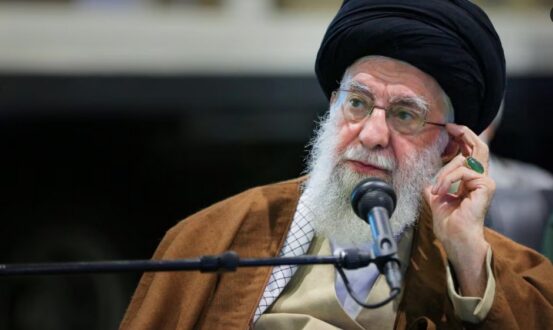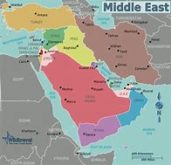Iranwire – Iran’s Supreme Leader, Ali Khamenei, has pledged a “harsh response” after two blasts ripped through a gathering to commemorate General Qasem Soleimani in Kerman and left at least 103 people dead.
“The evil and criminal enemies of the Iranian nation once again created a disaster and martyred a large number of people in Kerman,” Khamenei said in a statement.
“Iran and many of its families are grieving for their loved ones. The callous criminals could not bear the affection and fervor of the people visiting the shrine of their esteemed commander, Qasem Soleimani,” he added.
Soleimani was killed in 2020 in Baghdad by an American airstrike. He was commander of the Islamic Revolutionary Guards Corp (IRGC) Quds Force – an expeditionary force Iran uses for military actions across the region.
“Those whose hands are stained by the blood of innocents, as well as the corrupt and malevolent minds guiding them into this wrongdoing, will be unequivocally targeted,” Khamenei also warned.
Iran’s president, Ebrahim Raisi, responded by saying: “The enemies of the nation should know that such actions can never cause a disturbance in the ironclad determination of the Iranian nation to defend Islamic ideals.”
An anniversary ceremony commemorating the anniversary of Soleimani’s death in Kerman turned into a scene of horror today after two explosions ripped through the gathering.
The blasts, condemned as a terrorist attack by the Iranian government, shocked the country as officials in Tehran announced January 4 as a national day of mourning.
The incident is the deadliest single terrorist incident since the 1979 Islamic Revolution.
According to official reports, emergency services confirmed 103 fatalities, with unofficial sources suggesting women and children were among the victims.
Forty-three names of injured individuals have been released. The cause of the attack remains under investigation, with Interior Minister Ahmed Vahidi urging the public to avoid speculation and wait for confirmed information.
The explosions took place along the routes leading to Golzar Shohada, the Garden of Martyrs cemetery in Kerman. More than a thousand individuals considered “martyrs” by the Islamic Republic are buried there – including Soleimani – and the cemetery has become a site of pilgrimage of supporters of Iran’s “axis of resistance” against the United States and other Western powers.
Media affiliated with the IRGC reported four police officers among the dead, while other sources pointed to two explosive bags detonated at the entrance of Golzar Shohada, perhaps by remote.
International figures also offered condolences and condemnations with Russian President Vladimir Putin expressing his sympathies to Khamenei and calling the attack “barbaric.”
Turkish President Recep Tayyip Erdogan also expressed solidarity with the Iranian people.
And the Norway-based activist Mahmoud Amiri Moghadam, director of the Iranian Human Rights Organization, condemned the attack while expressing concern about potential government responses.
He warned against escalating tensions through increased executions and repression, urging the authorities to prioritize ensuring citizens’ security and addressing underlying issues.
The Iranian government will now assess various potential perpetrators of the attack, including exile groups, militant organizations, and state actors.
In 2017, Iran experienced two simultaneous terrorist attacks carried out by five individuals affiliated with Islamic State, also known as ISIS. The Iranian parliament building and the mausoleum of Ruhollah Khomeini in Tehran were targeted, resulting in the loss of 17 civilians and injuries to 43 others.
Tehran has claimed that it successfully thwarted numerous other ISIS plots aimed at civilians in public spaces within Iran.
The timing of today’s attack could not have come at a more challenging or tense moment in the Middle East, amid heightened distrust and instability, amid the ongoing conflict between Hamas in Israel in the Gaza Strip. Hamas also accused Israel of conducting a drone attack on January 2 resulting in the death of its deputy in Beirut.
 Shabtabnews In this dark night, I have lost my way – Arise from a corner, oh you the star of guidance.
Shabtabnews In this dark night, I have lost my way – Arise from a corner, oh you the star of guidance.



